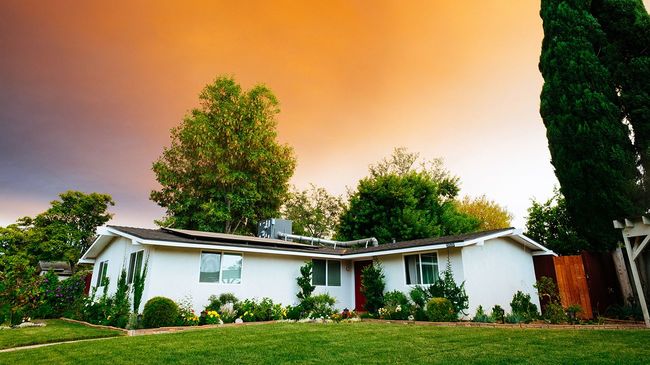Ready to Finance a Second Home? Investment Properties vs Vacation Homes

Making the decision to purchase a second home is just as life-changing as the decision to purchase your first home. Whether you’re looking for an investment property or a vacation home, financing a second home can be a lucrative investment if you’re financially prepared.
The demand for investment or vacation properties is definitely on the rise to pre-pandemic levels. DS News reports that "According to a new report from Redfin, the demand for second homes and investment properties was up 83% from pre-pandemic levels in November" of last year and "an increase over October's 72% increase."
New technology services are changing the hospitality industry. Companies, like Airbnb, are revolutionizing how homeowners manage their vacation rental properties. In fact, it was announced in February of 2018 that homeowners are now able to count the income they earn from their Airbnb rentals on applications for refinance loans.
What it all comes down to is whether you’re ready to finance a second home and what is the best loan option available.
Investment or vacation home?
Many don’t know that investment and vacation properties are financed differently. If you can qualify for your purchase without the property generating any income, buy it as a vacation home because you’ll be getting a better interest rate and qualifying for it is more straightforward when rental income isn’t in the mix.
Buying a second home to rent
If you need to rent out your second property to afford it, then it becomes an investment property, not a second home. Your lender will expect an appraisal with a comparable rental schedule. This document tells the underwriter what the property can potentially produce income-wise. Investment property mortgages almost always require at least 20% down because it’s very difficult to get mortgage insurance for these purchases.
Related: Buying a second home in another state.
Tax implications
If you plan to occupy your second home for more than 14 days per year or more than 10% of the time it's rented, the IRS categorizes it as a vacation home. If you occupy the property for less than IRS minimums or not at all, it’s categorized as an investment or rental property. The ways you use or occupy the second home usually defines the property category for tax purposes in the eyes of the IRS.
Vacation homes
Vacation homes that you never rent out are considered personal property like your primary residence. You can claim the mortgage interest deduction on your personal home and one vacation home. If you have a vacation home, you have to pick one to be the second home. You can write off property taxes on all your vacation homes. Property tax assessments for special projects, like new street lights on your road or freshly paved streets, aren't deductible.
Investment properties
Investment properties are treated as investment real estate. This means that you are not limited as to how much interest you can write off in your taxes. You report your income and expenses from your rental homes on the Schedule E form which lets you deduct just about every expense that you incur in owning the investment property. The only thing that you pay taxes on is the profit that you earn on the second home after expenses. If you lose money on the investment property, you can use that loss to offset income from other investment real estate properties or claim up to $25,000 of the loss against other income.
Just be sure to file the appropriate taxes for any rental income you get from your second home to avoid IRS penalties. You might need to consult a tax accountant for the best advice for those with rental income.
Related: How to list your home on Airbnb
Second home mortgage requirements
A conventional loan is the best loan program for financing your second home. This loan type is a mortgage that is not guaranteed or insured by any federal government agency such as the Federal Housing Administration (FHA) or the Department of Veterans Affairs (VA) or the US Department of Agriculture (USDA). A convention or “conforming” loan follows guidelines set by Fannie Mae and Freddie Mac.
How to buy a second home with no down payment
Conventional loans can be used to buy vacation homes and investment properties that are anywhere from one to four units. They also offer some of the lowest down payments available, letting you get into a home with as little as 3% down. If you make a 20% or more down payment then there are no private mortgage insurance (PMI) payments! Finally, conventional mortgages have flexible loan terms, you can select any repayment period between 8 and 30 years.
There are some caveats that apply particularly to conventional loans for second homes. Such as the second home cannot be located within 50 miles of the primary residence for example. Understandably, it’s best to speak with an experienced mortgage consultant like the ones at American Financing to go over all the features and requirements of your conventional loan.




